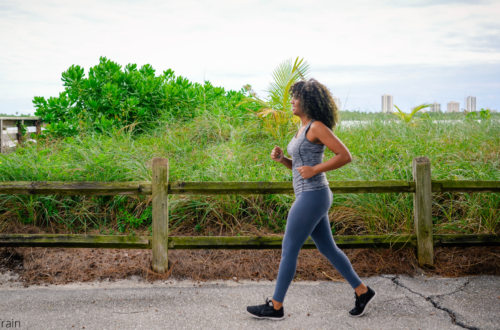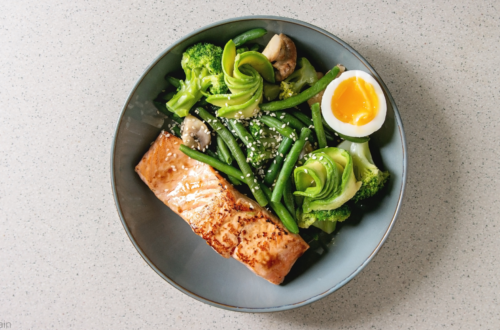
When is the Best time to Wake up, According to Science?
Have you ever wondered what the best time to wake up is in the morning?
Well, we are here to give you the answer!
We gathered all the data regarding the best time to wake up based on science, and we will share it with you in this blog post.
According to science, the best time to wake up depends on when you sleep. The amount of sleep recommended for an average adult is 7 to 9 hours. Therefore, if you usually go to bed at 10 pm, the best time to wake up would be between the hours of 5 am to 7 am.
It’s essential to note that there are individuals who require less sleep. For some, five to six hours of sleep can be enough to live a healthy and fully functional life.
Examples of Sleep and Wake up time
| Sleep Time | Ideal Wake Up Time |
| 9 pm | 4-6 am |
| 10 pm | 5-7 am |
| 11 pm | 6-8 am |
| 12 pm | 7-9 am |
Getting enough sleep is critical for overall health. But did you know scientific evidence suggests that waking up early also has health benefits?
Please continue reading to find out the benefits of waking up early and how to use it to your advantage.

Benefits of Waking up Early in The Morning:
Waking up in the earlier hours of the morning, between 4-6 am, has many health benefits, that is, if you manage to get enough sleep.
Mind
Studies have found that morning people tend to be more proactive, optimistic, agreeable, and conscientious.
MRI scans show that the brain’s prefrontal cortex is most active in the early hours of the morning.
This means the part of the brain in charge of decision making, willpower, social behavior, goal making, and planning is better at functioning early in the morning.

As the day goes on, there is a significant drop in prefrontal cortex activity; this drop results in lower self-control, less willpower, and less motivation.
Therefore, waking up early allows you to get more done because you are more motivated and optimistic.
You can meditate, journal, exercise, and do many other healthy activities that set you up for a successful day.
Having a healthy and productive morning routine has many health benefits and can help you achieve your goals in life.

Weight Loss
Studies indicate metabolism is faster in the morning, meaning it is easier to burn fat in the morning.
Therefore, working out on an empty stomach first thing in the morning can help you lose weight faster.
How to Become a Morning Person and Love it!
- Self-talk. Decide why you want to be a morning person.
- Go to sleep at the same time every night. Choose your bedtime so you get at least 7 hours of sleep every night. Stick to your bedtime.
- Develop a nightly routine to help you fall asleep faster.
- Start by waking up 15 minutes earlier than you usually do.
- For example, if you wake up at 9 am, start by waking up at 8:45 for one week, then at 8:30 am, and work your way back to your desired time.

- Do not hit the snooze button. Research shows sleep inertia pushes you back deeper into sleep after hitting snooze, making it harder to wake up the second time.
- Use Apps that require scanning a code to shut off your alarm. This makes it harder for you to go back to sleep.
- Exposure to sunlight. Open the curtains as soon as you wake up. Exposure to sunlight helps wake you up faster.
- Stretch before getting out of bed. Movement helps sharpen your mind and get you going.
- Delay your morning coffee for at least one hour after you wake up. The brain needs to adapt to the grogginess to learn to wake up on its own.

- Create a Morning Routine.
- For example, you can meditate and journal, write your daily goals and work out. Make your morning routine a habit. Set goals to accomplish in the morning when you wake up.
- Meditate. Meditation helps lower cortisol and decrease stress and anxiety. The best time for meditation is early morning. Over time you will look forward to waking up early and meditating, which can be a motivation for waking up early.
- HIIT. Do a 5-10 minute high-intensity interval training when you wake up; HIIT helps get your hormones going.
- Go camping! As little as 48 hours of camping can reset the body’s natural clock.
- A study published in The Journal of Current Biology indicated that as little as 48 hours of camping could help reset the body’s internal clock.
Is Being a Morning Person Genetic?
A chronotype is your body’s natural disposition to sleep or wake up at a specific time.
Research shows that being a morning person is a chronotype, and Chronotypes fall on a bell curve. 10-20% of people are either night owls or morning people; most people, however, fall somewhere in between.
There is evidence that your chronotype is written in your genes.
A 2016 study found 15 gene variants associated with the morning chronotype. These genes were related to the body’s response to light and regulating the circadian rhythms and related factors.
Chronotypes also seem heritable, so you may have inherited being a morning person from your mom or dad.
Takeaway:
The best time to wake up depends on how much sleep you need and when you go to bed. On average, an adult needs between 7-9 hours of sleep, although some require less sleep time, for example, 5 or 6 hours. So if you want to determine the best time for you to wake up, first figure out how many hours of sleep you need, then figure out the time you should go to sleep based on the hours of sleep you need. Finally, practice the tips and tricks we provided in this post and stick to them until waking up early becomes a habit. You may find yourself a morning person in no time. Let us know how it goes in the comments; thank you for reading!
References:





2 Comments
Pingback:
Pingback: